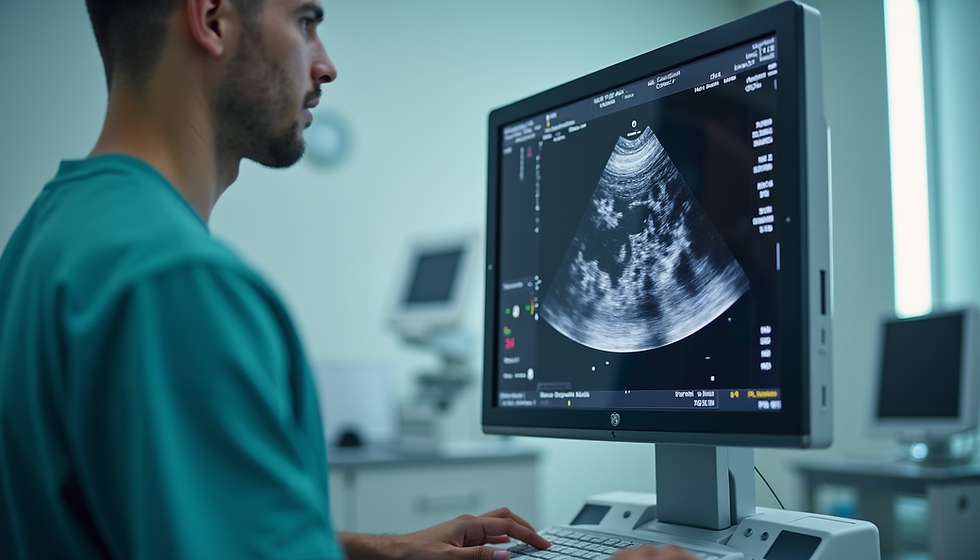Understanding the Reality of Sudden Cardiac Arrest and Its Implications
- Shane Yole
- Aug 13, 2025
- 3 min read
Sudden Cardiac Arrest (SCA) is a critical medical emergency that can strike unexpectedly and affect people of all ages. It occurs when the heart suddenly stops beating, leading to a halt in blood flow to vital organs like the brain. Grasping the implications of SCA is essential for individuals, families, and communities because swift action can drastically improve survival rates.

What is Sudden Cardiac Arrest?
Sudden Cardiac Arrest is often mistaken for a heart attack, but they are distinct events. A heart attack happens when blood flow to a part of the heart is blocked. In contrast, SCA arises from an electrical problem in the heart that disrupts its rhythm. For example, about 70% of all SCAs are attributed to a condition called ventricular fibrillation, where the heart quivers instead of pumping blood effectively.
Causes of Sudden Cardiac Arrest
Various factors can lead to SCA. Some of the most common causes include:
Coronary Artery Disease: This is the leading cause, affecting an estimated 18 million adults in the U.S. alone. It occurs when the arteries supplying blood to the heart become narrowed or blocked.
Cardiomyopathy: This condition affects the heart muscle and can result in irregular heart rhythms, contributing to SCA.
Arrhythmias: These are irregular heartbeats that can trigger SCA events.
Congenital Heart Defects: Some people are born with structural heart problems that increase their risk.
Other Factors: Drug abuse, severe electrolyte imbalances, and specific medical conditions also contribute to SCA incidences.
Recognizing the Signs
While SCA can strike without warning, there are warning signs that may precede it. These can include:
Chest Pain: This may feel like pressure or discomfort in the chest.
Shortness of Breath: Individuals may experience a sudden difficulty in breathing.
Dizziness or Lightheadedness: A sudden feeling of faintness could be a warning sign.
Palpitations: An awareness of an irregular or racing heartbeat can also be significant.
Although these signs can serve as crucial indicators for early intervention, it's important to note that SCA can occur without any preceding symptoms.
The Importance of Immediate Action
When someone suffers from Sudden Cardiac Arrest, every second matters. The brain can only survive for about 4 to 6 minutes without oxygen. Therefore, immediate action is vital. Here are the essential steps to take:
Call Emergency Services: Immediately dial your local emergency number.
Start CPR: If trained, begin cardiopulmonary resuscitation (CPR) right away. If not, push hard and fast in the center of the chest at a rate of 100 to 120 compressions per minute.
Use an AED: If available, use an Automated External Defibrillator (AED) as soon as possible. These devices are user-friendly and can provide life-saving shocks to restore a normal heart rhythm.
The Role of Bystanders
Bystanders have a critical role in the survival of someone experiencing SCA. Studies indicate that immediate CPR and the use of an AED can double or even triple the chances of survival. Communities are encouraged to promote CPR training and ensure that AEDs are readily accessible in public spaces, such as schools, shopping malls, and airports.
Long-Term Implications for Survivors
Surviving Sudden Cardiac Arrest can have various long-term effects. Survivors may face physical, emotional, and psychological challenges. These can include:
Physical Limitations: Survivors may experience varying degrees of physical impairment, depending on the extent of brain damage from lack of oxygen. Approximately 40% of survivors report significant physical limitations.
Emotional Impact: Many survivors deal with anxiety, depression, or post-traumatic stress disorder (PTSD) following the event, with around 20% developing PTSD symptoms within a few months.
Lifestyle Changes: Survivors often need to make substantial lifestyle adjustments, including changes in diet, exercise habits, and regular medication adherence, to avoid future cardiac events.
Prevention Strategies
While not all cases of SCA can be prevented, certain strategies can help reduce the risk. These include:
Regular Health Check-ups: Routine medical exams can identify risk factors such as high blood pressure or elevated cholesterol levels early.
Healthy Lifestyle Choices: Eating a balanced diet, engaging in regular physical activity, and avoiding tobacco can significantly lower the risk of heart disease.
By focusing on these strategies, individuals can significantly improve their heart health.
Wrapping It Up
Understanding Sudden Cardiac Arrest is vital for protecting lives. Knowing its causes, recognizing the signs, and being prepared to respond can make all the difference. By promoting awareness and training within our communities, we can empower individuals to act swiftly in emergencies. Furthermore, it is essential to consider the ongoing implications for survivors and their families beyond the immediate event. Creating a culture of preparedness and support is crucial for improving outcomes and enhancing the quality of life for everyone affected by SCA.
Being informed about Sudden Cardiac Arrest can make a significant difference, whether you are a healthcare professional, a family member, or an active community member. Your readiness can save lives.










Comments